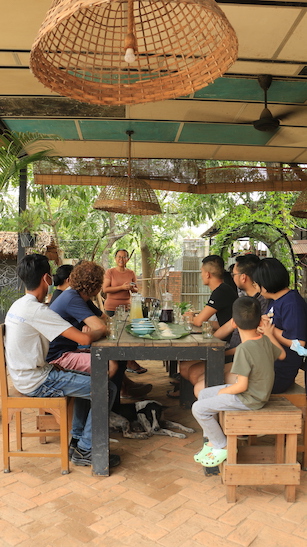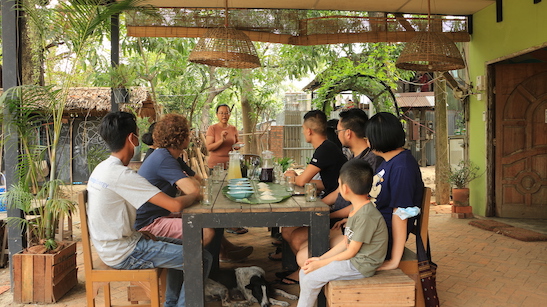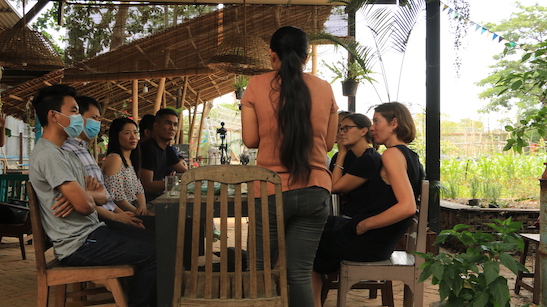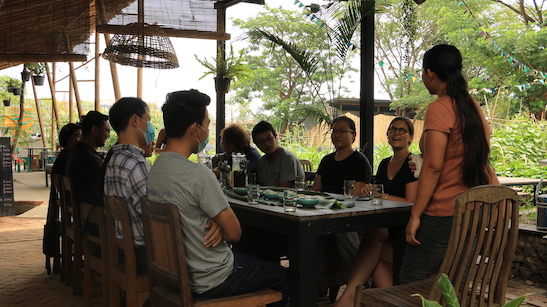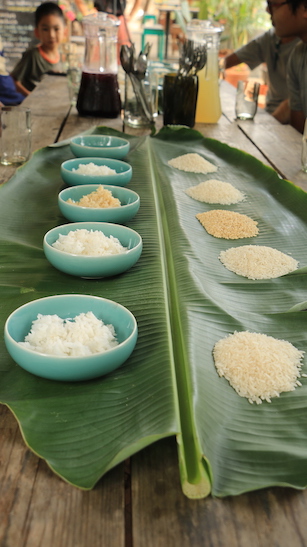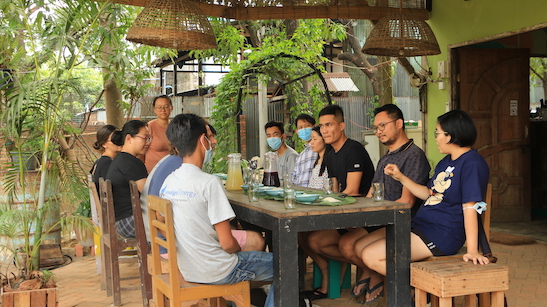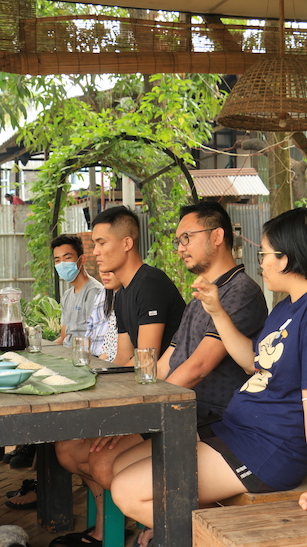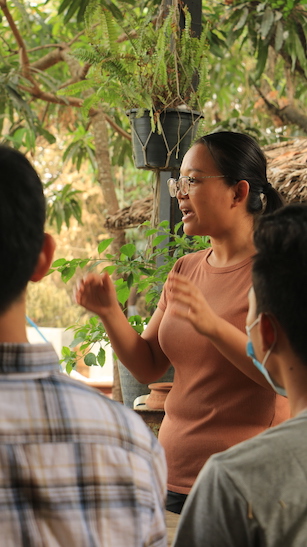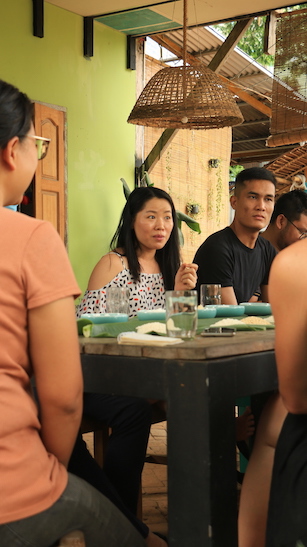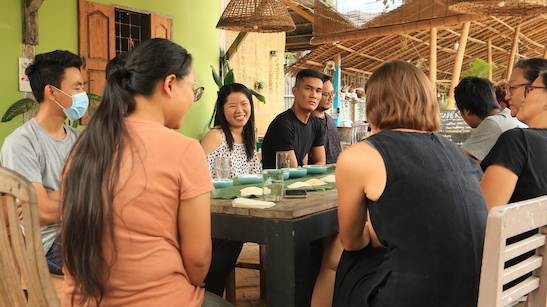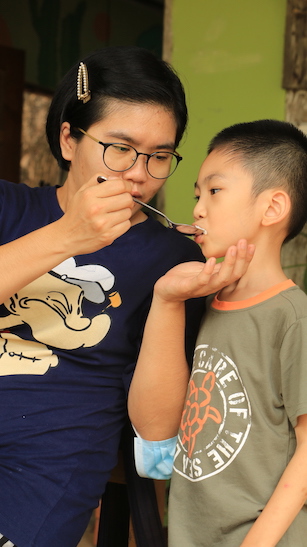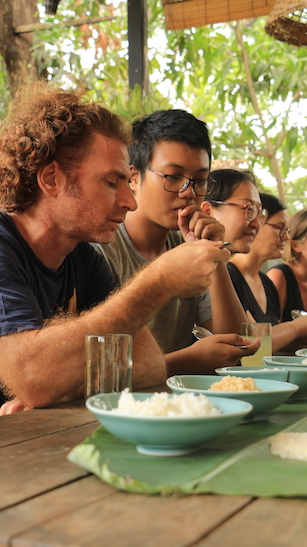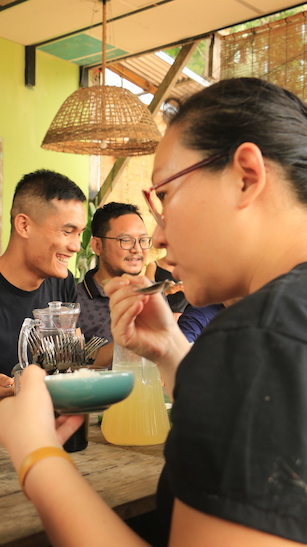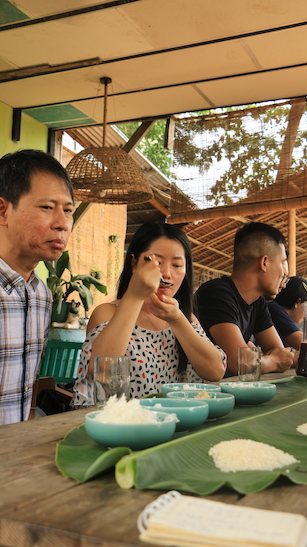စားပြီးပြီလား Sa Pi Pi La?
(Have you eaten?)
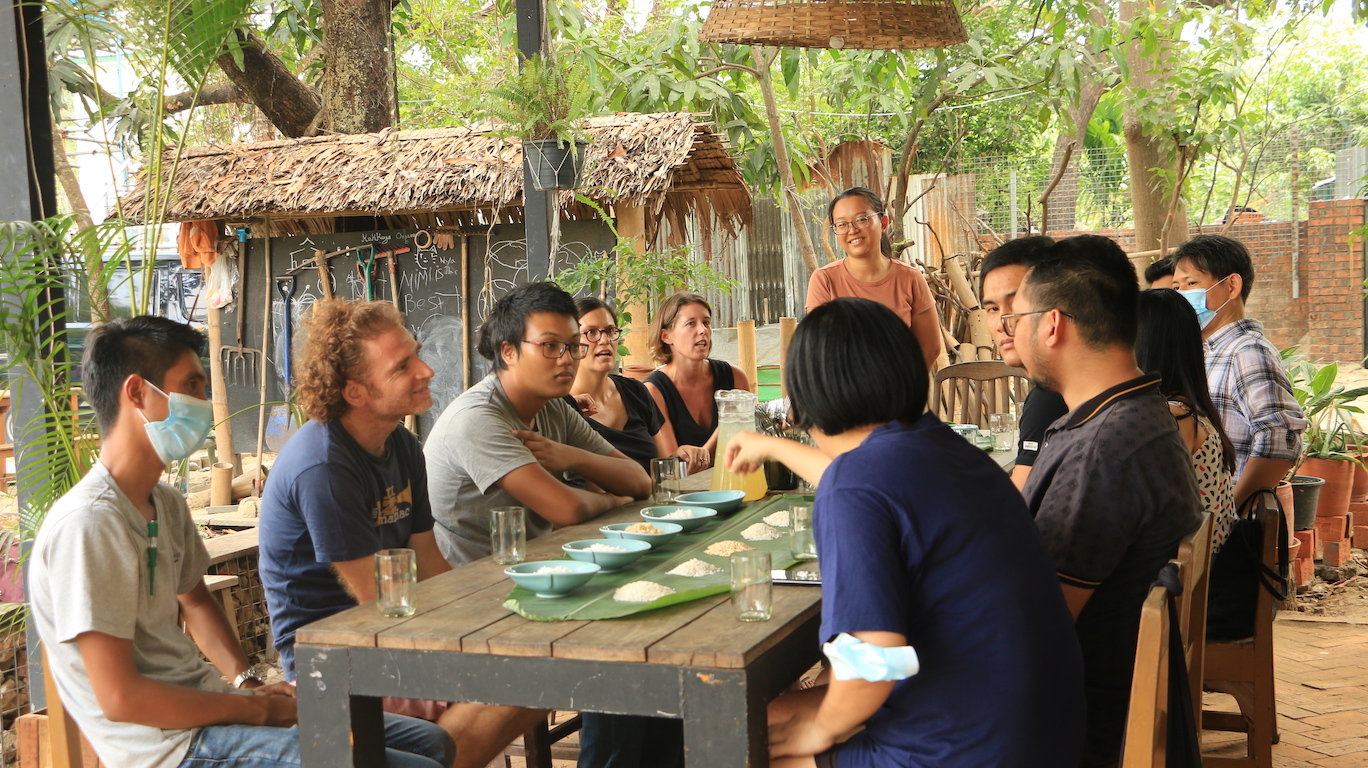
စားပြီးပြီလား Sa Pi Pi La? (Have you eaten?) session. Photo credit: Kokkoya Organics
စားပြီးပြီလား Sa Pi Pi La? (Have you eaten?)
Kokkoya Organics
Between the 1950s and 1960s, Burma (Myanmar) was once the largest rice exporter in the world1. After several military coups, state mismanagement of the country’s rice fields and climate change-induced natural disasters over the decades, Myanmars’ rice exports have fallen significantly behind her other ASEAN neighbours. Today, it places behind (rice export) world leaders Thailand and Vietnam by a significant margin.
စားပြီးပြီလား Sa Pi Pi La? (Have you eaten?) is created in collaboration with Kokkoya Organics. Drawing upon Kokkoya Organics' forte in custom made organic meals, the meal serves as a neutral ground to inform the audience about the prior rice fields research and invite people to share about their perspectives, as well as, personal stories about eating rice so as to understand the cosmology of rice varieties in Myanmar.
Invited guests and friends from Kokkoya Organics' network came together for the iteration of စားပြီးပြီလား Sa Pi Pi La? (Have you eaten?) to experience local rice varieties in a gastronomic and sensorial approach. Most participants have only tasted certain varieties of rice and they were offered a palette of different rice varieties (local and hybrid) to try. Conversations took the central stage as each individual shared a part of their heritage or memory of the rice they grew up eating. It becomes the reconnection tool that bridges the gastronomical experience (of rice tasting) to the personal stories engrained to each individual’s memory. Systematic agricultural issues were briefly discussed in the conversations as rice goes beyond the everyday staple on our dish.
Other intriguing topics also emerged from the conversations, such as "Who owns heritage rice seeds?" and "When (after how many cycles of planting) does a rice seed become ‘local’?" The state rice policies also deserved a mention in this session. The multifaceted conversations provoked a lot of food for thought and reflections on Myanmar rice systems. စားပြီးပြီလား Sa Pi Pi La? (Have you eaten?) definitely did not give answers but contributed more materials to the expanding anecdotes on rice sovereignty and local rice varieties knowledge to the Broken Rice Atlas.
Video documentation of စားပြီးပြီလား Sa Pi Pi La? (Have you eaten?). Video credit: Kokkoya Organics
A full transcript of စားပြီးပြီလား Sa Pi Pi La? (Have you eaten?) is available here
A condensed version of the session with identified keywords is presented through an interactive website platform:
References
-
Re-establishing Myanmar as a major regional rice producer in "Agriculture & Forestry" Chapter, Myanmar 2015 Report, Oxford Business Group. Source
Keywords: heirloom seeds, Kachin rice, Government seed control, Local seed, market, Government loan, rice tax, export, measurement, choose, Rice and salt.
Published 18 August 2021
